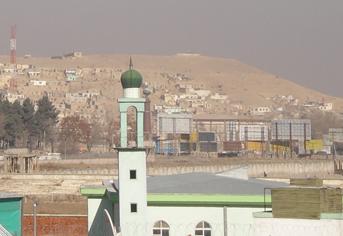
... long live the Commander.
I don't think I will approach this subject again for a few months until the real story is fleshed out, but let me touch on a few things about the very public sacking of the exceptional American General, General McKiernan.
First things first. McChrystal is from all that I hear as fine of a General as McKiernan and we are honored to have such a leader at such a time.
Now for the rest. There has been so much unmitigated garbage out there about General McKiernan and what he is and is not - why he is going and why not. What is and is not going on in Afghanistan. Just complete garbage.
I don't know who WaPo, NYT, LATimes, etc have as their Pentagon sources, but to quote LBG; they blow. My sources are so much better than theirs it makes me laugh. NB for the MSM - next time drop me an email at cdrsalamander(-at-)hotmail.com and let me help you out.
Pathetic, but besides a few like Yon, to get some good reporting on this we have to go across the pond.
I still can't believe I am blogg'n this, but you need to go to The Guardian (UK) to get something even close.
The problem is, the charges against McKiernan don't stick. In a media briefing last autumn, shortly after taking command, McKiernan set out a clear, thought-through, and politically subtle strategy. More troops were needed, especially in the south, after years of neglect due to Iraq. But reinforcements alone were not the answer..... and yes, you read something like the below at cdrsalamander well over 18-months ago and regularly since then.
"We can win all the tactical battles but that doesn't mean we win. To win, we have to win the battle of ideas," he said. "We must define winning in Afghan terms: meaning improved security, reduced civilian casualties, trustworthy government, economic and social progress."
McKiernan spoke of the need to increase Afghan army forces, provide a better-respected police force, root out foreign jihadis and Taliban extremists, and seek regional solutions via a "bottom-up" approach. "Most Afghans don't want the re-emergence of the Taliban. But we need a greater commitment by the international community ... Afghanistan will not ultimately be a military outcome. Isaf will not run out of bad people to kill. It will be a political solution."
These approaches accurately reflect Obama's Afghan policy, except McKiernan was already pursuing it six months before Obama made it his own. So the question remains: why was he fired?
One answer seems to lie with General David Petraeus, the Centcom commander and hero of the Iraq surge. Petraeus was the baleful, missing figure in the room when Gates and Mullen wielded the knife. Subordinate to McKiernan in Iraq, he is now his superior. The two men are not said to be close. McKiernan had allegedly been slow to adopt Petraeus's favoured counter-insurgency tactics, such as co-opting local tribal groups (as in Iraq). McChrystal, in contrast, is a special operations expert with a reputation for hunting down "high value" enemy targets.
But personal and tactical disagreements are not the whole story. The preoccupation of both Gates and Mullen with the urgent need to turn Afghanistan around rapidly reflects the pressure they are under from a White House that inherited a war it does not really want to fight and is not convinced it can win. McKiernan warned last year that a satisfactory outcome would take a decade, perhaps 14 years. For his political bosses, that was way too long.
The changes in command underscore the impression that Obama, abandoning long-term nation-building goals, is looking for quick, minimalist results in Afghanistan, chiefly containing and deflating the insurgency. His aides don't want the war dragging on when he stands for re-election in 2012.
In this latter respect, this week's developments mark another stage in the "re-Americanisation" of the Afghan war.... but that is OK, the rest of the world eventually catches up.
If I can add one possible minority report to this post - as I know that I can be wrong, have been in the past and will be in the future. I believe I have fairly good vision on this issue and General McKiernan, but I don't have pure vision. I could be missing something very important. Why do I second guess myself here at the end? Simple - there are other opinions that I value greatly, and when my thoughts are not in alignment with theirs, it gives me pause. It doesn't mean I change my mind, but it does mean that I leave my mind open to being wrong in the event down the road facts line up against my first opinion.
Who is giving me pause in this case? Simple, retired General Jack Keane in The Financial Times (UK).
Jack Keane, an influential retired general who lobbied for the dismissal of GenI believe General Keane is wrong in this case ... but his opinion is important to note ... and I leave the option open to be wrong.
McKiernan, said the senior Pentagon leadership had "made a tough call, but also the right call".
"The problem with Gen McKiernan was his lack of experience dealing with irregular warfare and counter-insurgency and his inability to really put in place a comprehensive counterinsurgency strategy," said Gen Keane.
To leave on a fun note in a way. Note how the Scots-Irish
When do they get their "Appreciation Month?"









No comments:
Post a Comment